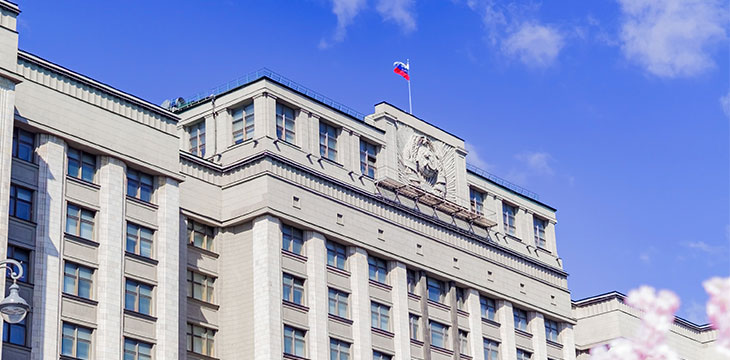|
Getting your Trinity Audio player ready...
|
Venezuela already has its Petro stablecoin in circulation and Peru is said to be next with its PeruCoin, which is expected to be launched soon. Now, it looks like Russia might be considering its own state-backed cryptocurrency.
According to Russian media outlet Govorit Moskva, the state Duma’s Committee on Financial Markets announced this past Friday that it is discussing creating a ruble-backed stablecoin in response to an increase in household debt. Duma member and Chairman of the committee Anatoly Aksakov added in a press conference that the stablecoin would be pegged to the country’s currency on a 1-to-1 basis and that an unspecified bank would issue a set amount of tokens based on a deposit made to Russia’s central bank.
Aksakov stated, “I am convinced that a cryptocurrency will appear, but it will be a secured cryptocurrency. At some bank, a certain amount of money is deposited on the deposit, and the bank issues the appropriate amount of crypto tools. The ratio of this currency will be one to one with the ruble.”
A Russian government-issued stablecoin was first discussed earlier this year and was expected to be made available at some point in 2019. An adviser to President Vladimir Putin, Sergey Glazyev, said recently that there had not been any progress on the stablecoin, but added that its implementation would not be difficult since the framework had already been created.
The fact that a state-backed cryptocurrency could be coming to the Russian economy is more than likely a huge factor in what has seemed like a backtrack on the country’s position toward digital currency. At the beginning of September, police started seizing crypto ATMs across the country.
Later that same month, a regulatory framework for crypto had been discussed by the Duma; however, by the time it made it through the legislative channels, any reference to cryptocurrency had been removed. The cryptocurrency community has become increasingly frustrated with the apparent lack of progress for crypto regulations and decided to begin self-regulation last week. The merits of such an organization could become moot if Russia decides to completely take over the cryptocurrency industry.

 02-21-2026
02-21-2026 




